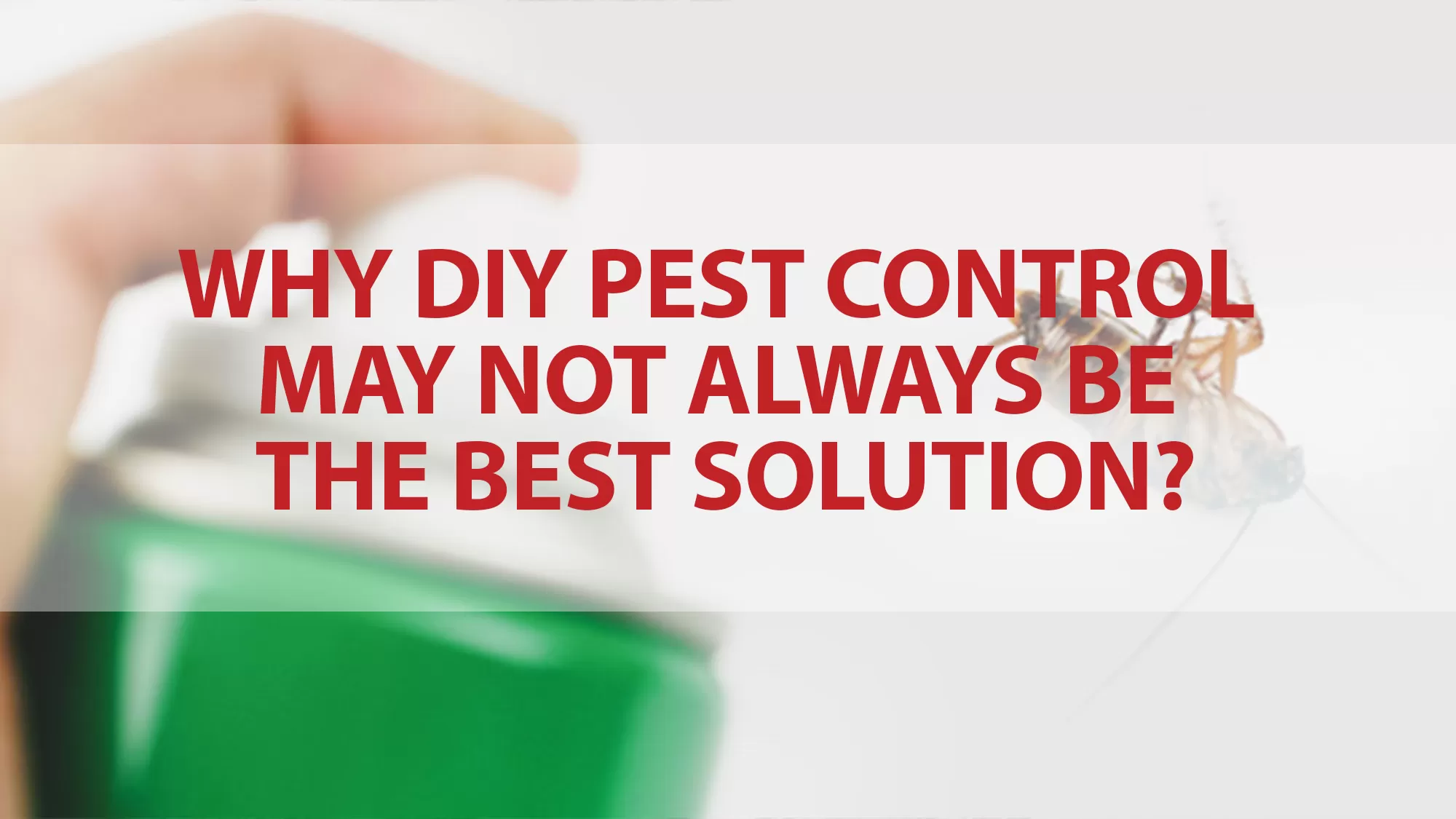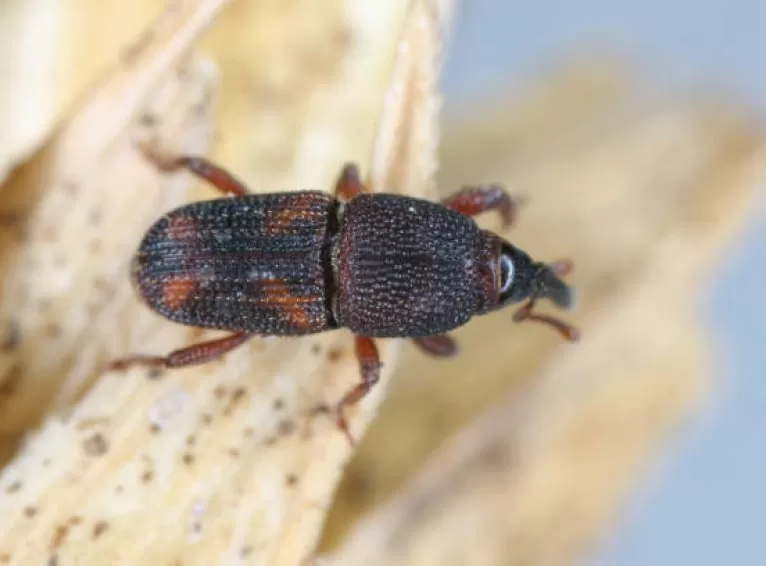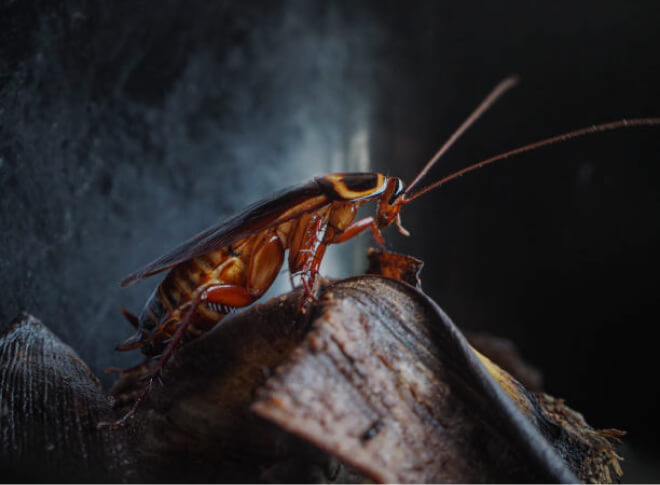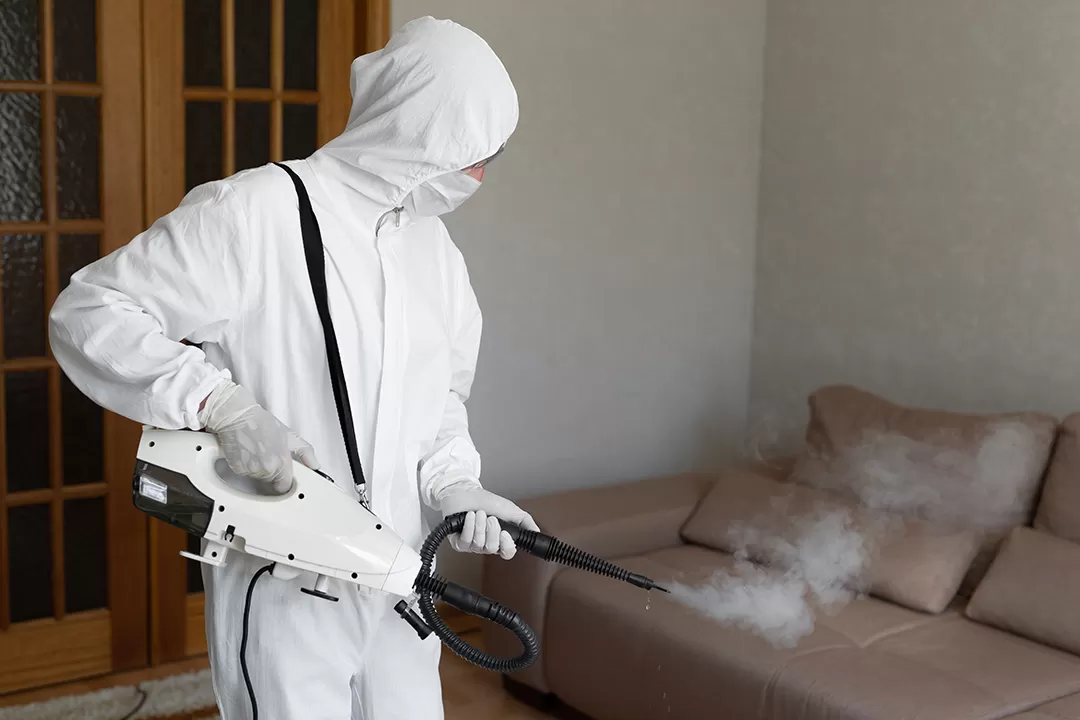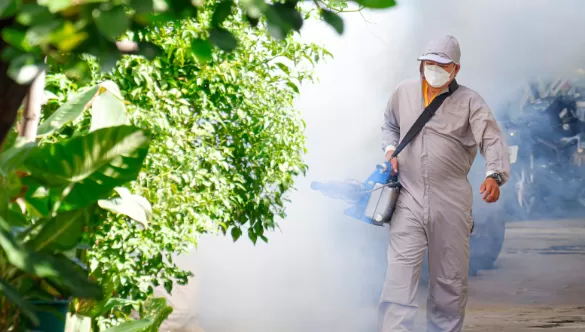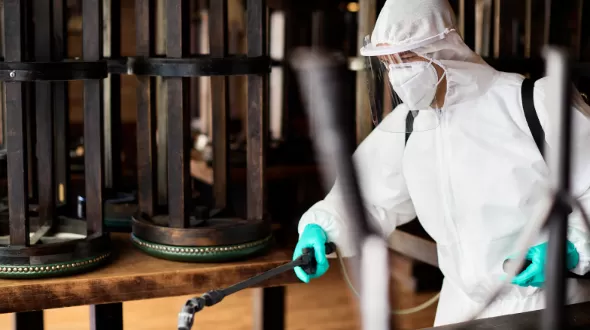Are you contemplating tackling the pest problem in your home all by yourself? Thanks to the internet, you have access to an overload of easy home remedies and cheap DIY pest control methods. However, as compelling as DIY pest control may sound, it has several drawbacks. Surely, you can take care of a few bugs here and there, but fighting a pest infestation without professional support is not recommended.
For many reasons, DIY pest control is not the best solution if you are trying to rid your home of unwanted populations of pests. In this article, you can learn about some of the top reasons why DIY pest control is bad for the health and hygiene of your home.
Reasons Why DIY Pest Control is Not the Best Solution
Wrong Identification of Pests
You may try to guess as to what pests are burdening your home, and sometimes, you might even be correct! However, there is always the possibility of mistaken identification.
Telltale signs such as damage and droppings are often similar among different types of pests. Moreover, some pests may look almost identical, causing confusion and wrong identification. For example, a bat bug and a bed bug look so similar that it is difficult to identify if you are not a trained technician.
Applying an Incorrect Solution
From roaches to ants to rats – one or more of hundreds of different species may be creeping around your house. Unfortunately, there is no one-size-fits-all approach to tackling all pests.
You cannot use a unified home remedy or bait for pests of every type. Each species has unique preferences in terms of eating and living habits. This means that your pest control techniques must be tailored to the specific pests that are troubling your property.
Even though over-the-counter baits, traps, and pesticides tend to make big promises, they are usually ineffective. A bug spray might help general pest maintenance, but if you do not use the right pest control solution tailored for the pest you are dealing with, you will not gain permanent relief from the problem.
Home Remedies Are Not Reliable
Baking soda, neem, citrus, or salt – no matter which home remedy you rely on, complete and permanent pest management is difficult without a professional exterminator. Occasionally, you will find some DIY solutions effective, but the success is often coincidental or short-lived.
One of the biggest concerns with DIY pest control methods is that they often only target creatures you can see. However, they ignore pests hiding away in secret spots like attics, crawlspaces, and behind the walls.
As most DIY pest control products are formulated to kill on contact, the issue is only temporarily fixed as the nest or source colony is not eliminated. Another concern is that many insects become more resistant to common off-the-shelf and natural pest solutions. So instead you should schedule pest control services regularly.
Incorrect Use of Chemicals
Pest control products are made of several chemicals, and some are even labelled as toxic. Incorrect use of chemical products can put you at risk. Unfortunately, you will also be putting your family members at risk, especially children and pets who have a tendency to pick up and taste things.
For safe application, not only do you need to know which chemicals to apply but also what quantity to use. You must consider that mixing pesticides with different chemicals can result in other harmful chemicals being produced. When misused, some pesticides like caustic sprays can damage the home’s paint, wallpaper, and surface materials. If you try harsh pest control techniques outside the house, you might also end up destroying your own beautiful yard.
Risk of Exposure to Harmful Chemicals
Heavily applying strong pesticides to every surface might seem like the best way to get quick relief from pest infestation. However, there are a few problems with this approach. First of all, DIY chemicals and over-the-counter pesticides usually over-promise but under-deliver. Instead of eradicating the pest problem at hand, you may trigger an explosion of the existing population.
Secondly, overuse of these chemicals can contaminate your surroundings. For example, it can pollute the water supply and the air you breathe in. What’s more, it can also affect the plants in your house.
You are required to wear suitable protective clothing to ensure safety. Protective masks and gloves are mandatory but often ignored during DIY pest control projects. Failure to take these precautionary measures can cause painful skin irritation, respiratory damage, and various other severe consequences.
Environmental Risks
Not only do you risk putting the health of yourself and your family at risk, but a DIY solution for pest control can have a drastic impact on the environment too. If applied outside your home, the DIY project can affect plants, animals, birds, and other insects such as butterflies and bees that are generally harmless.
If the pesticides wash into a nearby water source, they will contaminate it. This threatens the lives of other people in your area. Not just that, this will also affect fish and other species living in the water.
It is important to protect the environment. Hence, responsible use of chemicals should be emphasised. However, if you do not know the proper ways to handle harmful chemicals, it is best to seek help from professionals.
You Might Make the Pest Problem Worse
Insects may have tiny brains, but they are smarter than you think. So when they are sprayed with toxic pesticides, they have a natural tendency to scatter and hide.
When you target and spray, some insects will die, but it will also lead them to spread all over the premises – making them trickier to eradicate. Sometimes, this can lead to severe loss as pests like termites can cause costly damages if not dealt with on time and in the right way.
Final Takeaway
If getting rid of all pest infestations was as simple as making use of commonly suggested home remedies, no one would have pest problems. But unfortunately, DIY pest control is not always a good idea. Not only are DIY attempts often ineffective, but the results are also temporary. Moreover, you can make a dangerous mess if you do not know the dos and don’ts of using harsh chemicals for pest eradication. So, appoint a professional pest control service in Singapore for your, your family and the environment’s interest.

